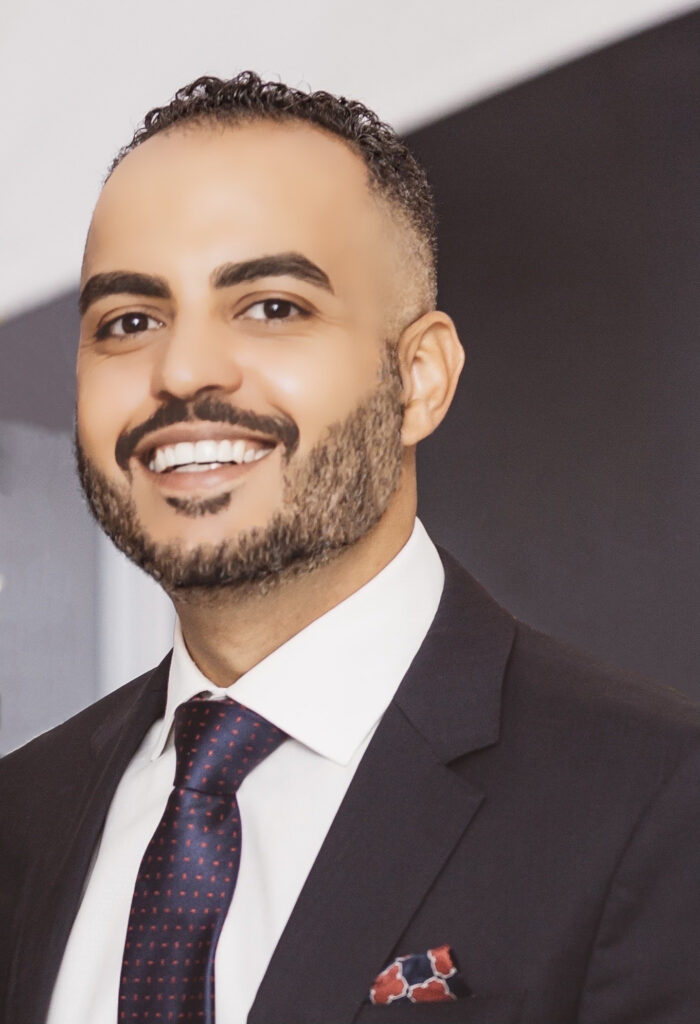
Students will be immersed in an unparalleled learning experience on May 1 and 2 as York University’s School of Global Health unveils an innovative global health simulation event designed for Faculty of Health students.

Spearheaded by Dr. Ahmad Firas Khalid, a physician and assistant professor of global health and faculty Fellow with the Faculty of Health, this first-of-its-kind simulation will transport students into the heart of the World Health Organization’s (WHO) World Health Assembly.
Participating students will have a unique opportunity to collaborate, tackle multi-sectoral challenges, and deepen their understanding of the United Nations Sustainable Development Goals (UN SDGs). The deadline to register is April 17. Students must register using this link. Those who would like to attend the opening and closing plenary sessions and the side sessions as an observer are also welcome; the registration deadline is noon on April 21 using an online form.
Khalid has created a state-of-the-art simulation of the World Health Assembly (WHA), WHO’s supreme governing body, giving students the chance to participate in creating collaborative governance approaches to multi-sectoral and multi-jurisdictional global challenges. The simulation, the first of its kind, also provides a deeper understanding of the UN SDGs.
“This project is groundbreaking because simulation-based learning in global health training is new,” Khalid said. “Presently, there is a distinct lack of continuous efforts aimed at advancing experiential education through simulation-based learning in global health, especially beyond the traditional clinical settings.
“In accordance with the University Academic Plan, the WHA SIM advances experiential education (EE) at York beyond the classroom by pioneering a novel EE strategy that combines the opportunity to explore and analyze real-world problems by applying theory and skills to a concrete experience and producing outputs that are collaborative and action oriented.”
The simulation, which takes place at the Keele Campus, begins with an opening ceremony and a welcome address by York University President and Vice-Chancellor Rhonda Lenton, followed by a panel discussion on “Building Solidarity for Worldwide Health Security” moderated by Professor A.M. Viens, director of York’s School of Global Health. The panel features Dr. David Peters, dean of the Faculty of Health; Dr. James Orbinski, director of York’s Dahdaleh Institute for Global Health Research; and Krishnan Shankar, science advisor and community partnerships lead at ScienceUpFirst Initiative, Canadian Association of Science Centres.
Afterward, students will immerse themselves in the simulation, joining one of three committees: Public Health Emergencies: Preparedness and response; Strengthening Infodemic Management; or Universal Health Coverage: Reorienting health systems to primary care. Students will discuss the issue facing them and draft a related position paper and resolution. Each committee will work with a York University mentor who is an expert in the field: Godfred Boateng, assistant professor of global health; Matthew Poirier, assistant professor of social epidemiology; and Farah Ahmad, associate professor in the School of Health Policy and Management.
On the second day of the simulation, each committee will take its resolution through the WHA approval process, aiming to have it passed.
“The WHA simulation should be eye-opening for students as they are exposed to the procedures and politics involved in global health initiatives,” Khalid said. “This amazing opportunity will offer valuable lessons that will be transferable to their future careers.”
Participants will also attend a career session focused on opportunities in global health and enjoy a lecture by Anthony Morgan, the new host of CBC’s acclaimed television program, The Nature of Things.
The simulation will end with an awards ceremony, recognizing the best delegate, best collaborator and best position paper.
“This is a fantastic EE opportunity for our students,” said Viens. “York’s undergraduate global health program was the first in Canada and one of the first in the world to offer a free-standing undergraduate global health degree. Its reputation and record of educating the next generation of global health leaders will be further advanced by this innovative, real-world simulation-based experiential learning initiative. It’s something we hope to enlarge upon in years to come.”
